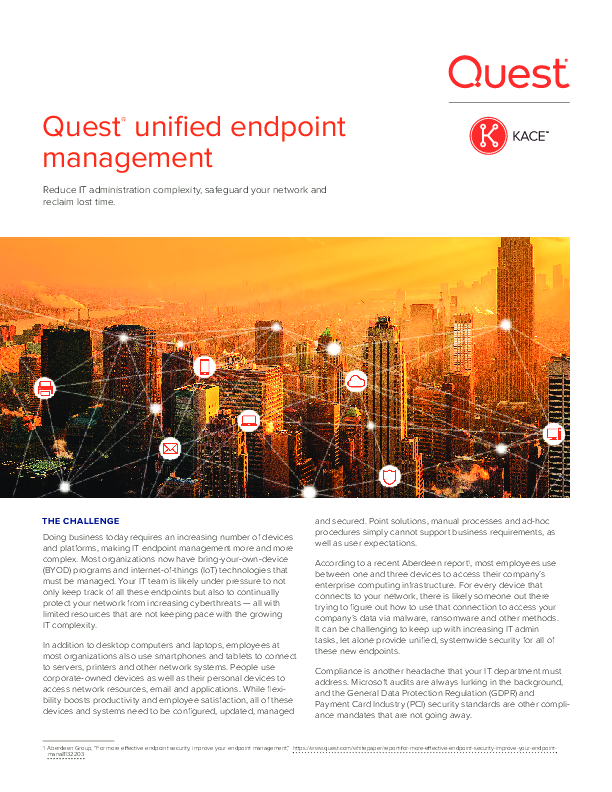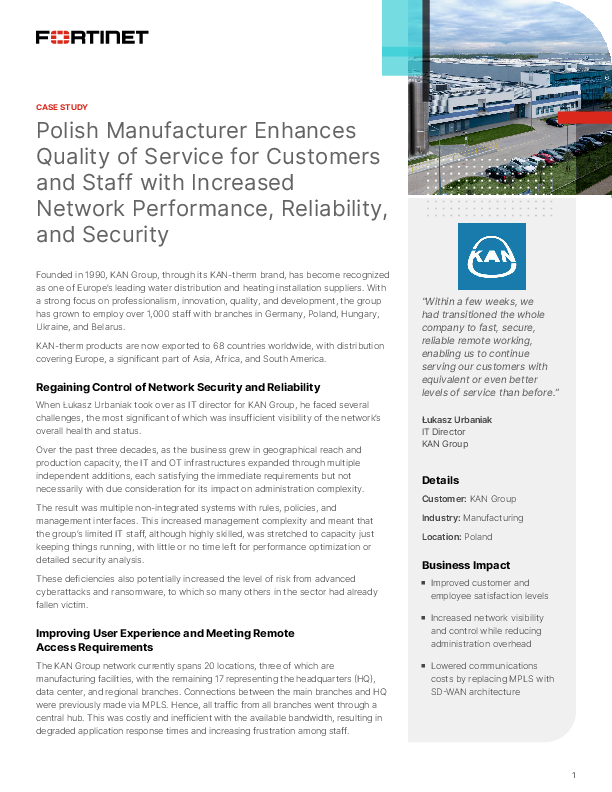

Future-proofing endpoint management
New devices, platforms, applications, and technologies connecting to the network are overwhelming IT’s ability to manage devices and software across the enterprise environment. The crisis has come to a head with more employees working remotely, often full time. IT now must be able to manage both corporate-owned and personally owned devices used to access network resources, email, and applications.
Many organizations struggle with separate endpoint and mobile device management systems that complicate their endpoint environments. While some employ consolidated management consoles, they often still rely on disparate processes to manage desktop and mobile devices. Increased use of cloud applications and the rapidly proliferating numbers of Internet of Things (IoT) devices often fall outside the visibility of IT.
Unified endpoint management (UEM) simplifies IT’s ability to administer, manage, and secure all devices from a single solution. This guide examines endpoint management issues and reviews best practices in UEM implementation.









